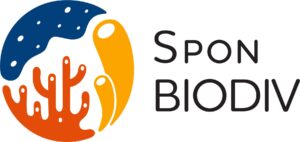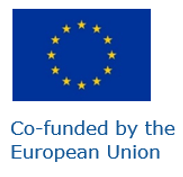SponBIODIV
Title: Marine sponge biodiversity from genes to ecosystems: delivering knowledge and tools for sustainable management and conservation
Funding Source: EU HEurope
Budget IMBBC: 94,000€
Start / End Date: 2024 - 2027
Web site URL: https://sponbiodiv.org/
Project Progress: 37%
Research Directions:
Population genetics and phylogeography
Environmental genomics
Marine biodiversity
Description:
 Marine sponges shape marine benthic ecosystems globally and they have been doing so for more than 600 million years. They serve as habitat and nursery to numerous other species and play key roles in nutrient recycling. However, their diversity patterns and habitat status are poorly documented. SponBIODIV aims to address this knowledge gap by building a comprehensive inventory of marine sponges in the Atlantic Ocean and Mediterranean Sea. The project will also develop new monitoring tools to assess the status of sponge populations and their habitats. This information will be used to advance effective conservation and restoration measures to protect marine sponges and their ecosystems.
Marine sponges shape marine benthic ecosystems globally and they have been doing so for more than 600 million years. They serve as habitat and nursery to numerous other species and play key roles in nutrient recycling. However, their diversity patterns and habitat status are poorly documented. SponBIODIV aims to address this knowledge gap by building a comprehensive inventory of marine sponges in the Atlantic Ocean and Mediterranean Sea. The project will also develop new monitoring tools to assess the status of sponge populations and their habitats. This information will be used to advance effective conservation and restoration measures to protect marine sponges and their ecosystems.
SponBIODIV is a key initiative to protect marine sponges and their ecosystems.
Its main activities include:
- - Improving the understanding of marine sponge diversity and distribution
- - Creating new monitoring tools for sponge habitats
- - Increasing knowledge of the threats that marine sponges are facing
- - Developing effective conservation measures to protect restore marine sponges
- - Contributing to the implementation of the EU Biodiversity Strategy for 2030
Objectives & Main Research Questions
SponBIODIV’s main goal is to establish a sponge diversity and distribution baseline knowledge, as well as delivering tools to improve management and conservation of sponges across the Atlantic and Mediterranean. More specifically, this project will aim to:
- - Identify bio and phylodiversity hotspots of sponge and sponge habitats across the Atlantic and Mediterranean, by compiling the most comprehensive dataset of sponges of this region.
- - Establish ecological/genetic corridors and refugia areas between species and regions, combining biophysical modelling and population genomic approaches.
- - Develop new methodologies for wider biodiversity detection and monitoring of sponge habitats by harnessing the potential of eDNA and sponges as natural samplers of eDNA.
- - Assess the current conservation status of species and habitats in line with major international processes.
- - Engage relevant stakeholders for co-production and co-delivery of data and practical tools to inform management, conservation, and restoration actions.
- - Raise public awareness of the importance of sponge species and habitats.
 |
 |
 |




